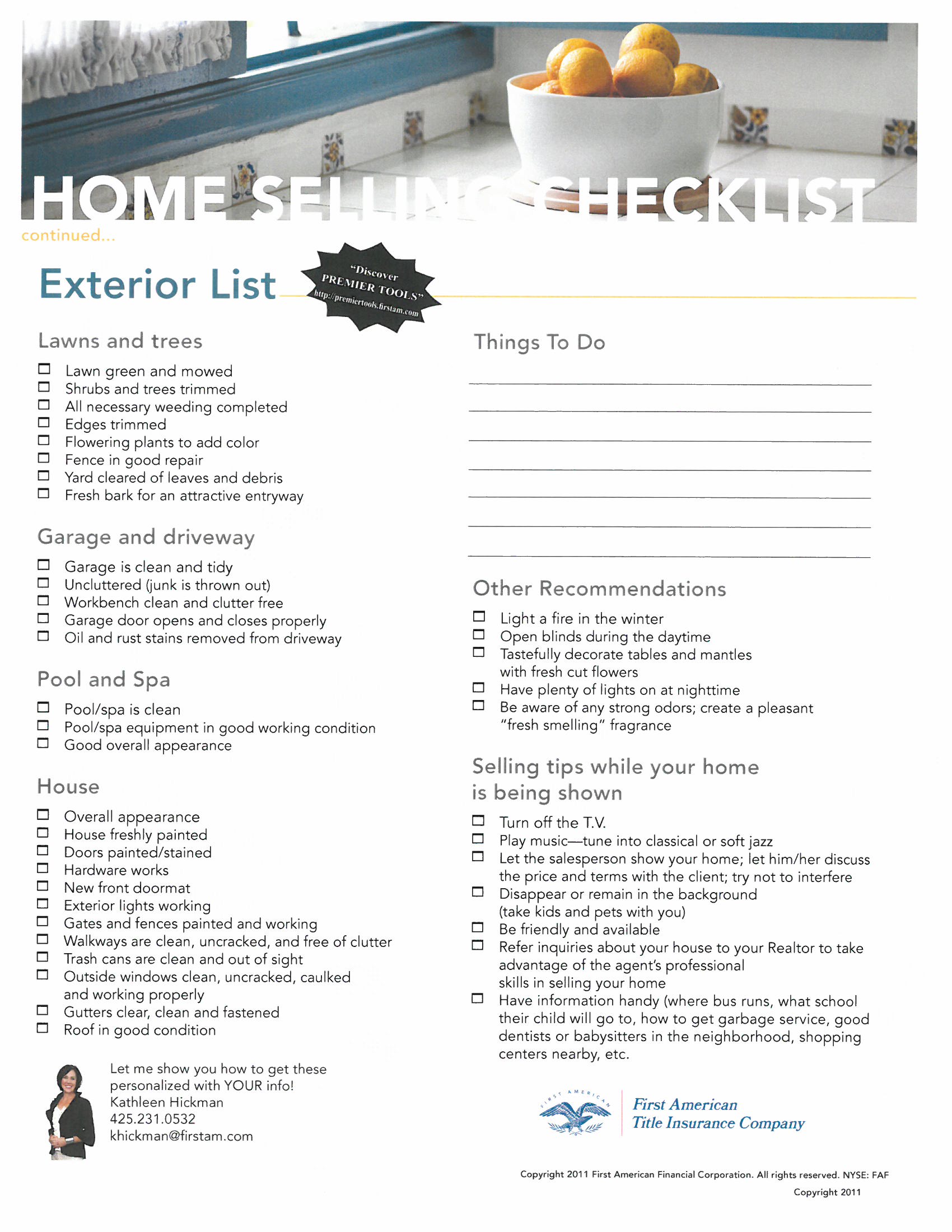Essential Documents Checklist: Selling Your House Fast

When you're gearing up to sell your house, having all your documents in order is critical for a smooth and fast transaction. Whether you're selling through a real estate agent or to a company that offers a quick cash sale, you'll find that being prepared is a key step in the process. Here's an essential documents checklist that will help you navigate the sale of your home with ease:
1. Proof of Ownership

This is the bedrock of your home sale:
- Title Deed: Demonstrates legal ownership of the property. It includes details about when and how the title was acquired, previous ownership, and any encumbrances.
- Property Tax Receipts: Show that taxes are current, which is reassuring for buyers.
- Homeowners Insurance Policy: This could be relevant for the title transfer and might affect insurance transfer during the sale.
🏡 Note: Some buyers might ask for a clear title to proceed with the sale. Ensure your title is free from liens or disputes.
2. Mortgage and Loan Documents

If your home isn’t mortgage-free:
- Mortgage Statement: Shows how much you’ve paid and what remains, helping buyers understand potential loan balances they might take over or negotiate a payoff.
- Payoff Letter: This official letter from your lender specifies the total amount needed to clear the mortgage, including interest and penalties, if any.
3. Home Warranty, Maintenance, and Repair Documents

Providing this information can greatly reassure potential buyers:
- Home Warranty: If you have one, this can be a selling point as it indicates the home systems and appliances are maintained.
- Maintenance Records: Log of all repairs and maintenance work done on the house.
- Inspection Reports: Recent inspections like termite, roof, or structural integrity reports can provide insights into the condition of the property.
4. Disclosures

Legal requirements may vary by state, but common disclosures include:
- Lead-Based Paint Disclosure: Mandatory for homes built before 1978.
- Natural Hazard Disclosures: Inform buyers about potential risks like flood zones or earthquake fault lines.
- Real Estate Transfer Disclosure: Details known issues with the property.
📝 Note: Failing to disclose material facts can lead to legal issues later on, so it's vital to be transparent.
5. Utility Bills

These can provide insight into the ongoing costs:
- Recent electricity, gas, water, and sewer bills: Helps buyers gauge the expenses associated with the property.
6. Association Documents

If applicable:
- HOA Documents: Rules, fees, and minutes of the Homeowners Association.
- Community Covenants, Conditions, and Restrictions (CC&Rs): Legal restrictions or requirements.
7. Certificates and Permits

Ensure compliance and transparency:
- Building Permits: For any significant construction or alterations to the property.
- Occupancy Certificate: Demonstrates the property meets code standards for habitability.
8. Legal Documents

These might be needed for specific transactions:
- Power of Attorney: If someone else will sign documents on your behalf.
- Property Survey: Shows property boundaries, easements, and encroachments.
Being well-organized with your documents will not only expedite the selling process but also build trust with potential buyers. Transparency can facilitate negotiations and minimize potential hurdles during the sale.
In summarizing, to ensure a fast and efficient sale of your home, gather all necessary documents, including proof of ownership, mortgage details, home warranties, and legal disclosures. Each piece of paper plays a part in establishing your property's value and your credibility as a seller. By having these documents ready, you'll be one step ahead in selling your house swiftly and smoothly.
Why is it important to disclose known issues with the property?

+
Disclosing known issues with the property is vital for several reasons. Legally, it protects you from potential lawsuits for non-disclosure. Ethically, it establishes trust with the buyer, which can lead to smoother negotiations and a more straightforward sale process. Also, buyers usually prefer transparency as it helps them make informed decisions.
Can I sell my house without paying off my mortgage?

+
Yes, you can sell your home with an outstanding mortgage. The proceeds from the sale will first go to pay off the mortgage, and any remaining amount will be yours. However, if the sale price doesn’t cover the mortgage, you might need to arrange for the shortfall or negotiate with the buyer.
What should I do if I’ve lost some of the essential documents?

+
If you’ve lost documents, you’ll need to obtain replacements. For deeds and titles, contact your local county recorder’s office or title company. For mortgage documents, reach out to your lender. For maintenance records or warranties, you might need to contact service providers or manufacturers.



